#just because it is modern does not mean it is equivalent
Text
looove sherlock and co but if one of you bastards says that it's "just like bbc sherlock" again I will punt you directly into the sun
#this is a mystery podcast#bbc sherlock is a drama show with mystery elements#but that show mostly focuses on plot#sherlock and co as an extension of acd canon is thus nothing like it#the plot#characters#stories#tone#etc#none of it is like the show#just because it is modern does not mean it is equivalent#I rest my case goodnight#sherlock and co
97 notes
·
View notes
Text
63k words and ~4 months into the BOTW Band AU when I suddenly get the idea for a canonverse longfic that would definitely be structured better and easier to write.

#THIS WOULD HAVE BEEN GREAT MONTHS AGO THANKS A LOT BRAIN#i shot myself in the foot by not knowing how bands worked/operating on rule of cool when i first made the au#(which i made so i could have a universe to explain drawing the characters in modern clothes and doing mundane things)#and i think the tweaks i made to everyone's backstories to be more modernized altered their characters a bit since that's what would happen#being an orphan does different things to someone than being essentially abandoned & not being royalty means more outside friends#stuff like that#(basically everyone has more support systems than in the canonverse AND they're all slightly older.....)#there's also some happenings with there being more intermixed cities than just the one in the game and what that would mean for society.....#literally the 'band' aspects are second fiddle (ha) to the modern setting shenanigans anyway hrghhhhhhhhhh#but it had to be like that because otherwise how else would these characters all be forced to spend so much time together#and i wanted their jobs to be coooooooool and vaguely equivalent to their champion positions in the game ARGH#aside from a job setting there would only be college as an option & i am NOT interested in reliving the college experience via fanfic#there's no time left to write another longfic before the sequel comes out and razes all post-canon fics with whatever they're going to do#ughhhhhhhhhhhhhhhhhhhhhhhhhhhhhhhhhhhhhhhhhhhh#i've been enjoying cramming every single fanfic trope i enjoy into the fic but that doesn't make for the most cohesive plotline boooooooo#sigh#i even have an actual title for the new one RIP me
0 notes
Text
SVSSS AU set post-canon, the peak lords are having a meeting, business as usual, right up until a heavenly official manifests smack dab in the middle of it. Said official takes one look around, spots Shang Qinghua, and basically falls into a perfect kowtow in front of him while being a level of distraughtly sticky that would make Luo Binghe proud.
"Your excellency, we know you wanted to oversee this section of history, we know it's your holiday, but we need you back, please, no one can figure out your filing system-!!!"
There is an absolutely reasonable amount of pandemonium from ten of the remaining peak lords, Shen Yuan is feigning indifference while also paying razor-edged attention because 'dammit, Airplane, what did you do now', and Shang Qinghua is desperately trying to figure out how to get this god to stop crying and hugging his ankles while babbling about paperwork. Once everyone has calmed down enough, it's revealed that Shang Qinghua, on top of being Shang Qinghua, really is the creator-god of this world and his current human incarnation is the equivalent of a sabbatical to watch some really interesting current events.
Now, the thing is? Airplane is still very much Airplane, all that's true. The part where it gets complicated is that he really is also this world's creator-god, divine powers and all, and he arrived much earlier than the 40+ years ago he thought he had. He has, in fact, been here for most of the world's history, managing the logistics of things to keep them running relatively smoothly the whole time. Except then he realized, "Hey, we're getting close to the era of the Plot, I wanna see that and maybe fix it some!" So he sealed his own memories from between his death and his arrival in this world and incarnated himself as Shang Qinghua specifically so he'd get a chance to meet his favorite character.
The real kicker is, the System? Yeah, there's a reason it has such a modern-tech interface and sounds so Google translate and stuff.
Because Airplane made that, too. Primarily because, while it's been awhile and he doesn't fully remember how he was as a human, he does remember his tendencies to try and wriggle out of stuff, and even now he prefers a comfy life with a not unreasonable amount of delegation, so he decided to give himself a little something to keep himself on-task.
He did not mean to make the damn thing so mean, that was an oops on his part.
While Airplane is reeling with all the headache that is gaining a few thousand extra years of memories while still remaining primarily himself, one of the peak lords asks if the official is certain they have the right person.
They get a derisive sneer for their efforts. "Of course it's his excellency, you think a normal man could run the logistics for a great sect, the Northern realm, and a portion of the Demon Emperor's court, even without having a writing career and social life on the side? Besides, he's the only one we've found who takes notes in his excellency's secret language." And they point dramatically to where Airplane's scribbled some pinyin in the margins of his paperwork.
Airplane can feel Cumcumber-bro's judgement from across the room. On the plus side, his memories of being a god included how to power down the System, so that's something at least, right?
Right?
...
...he needs to go stick his face in his king's chest and cry for a little, he can just feel his workload increasing...
511 notes
·
View notes
Text
BES College Au Headcanons
Characters included: Mizu, Taigen, Ringo, Akemi, Madame Kaji
There are some Mizu x Reader hints shoved in here
A/N: I’m just gonna stop saying what I plan to write next cause every time I do I suddenly either can’t write anymore or something ruins my plans entirely
Also there was an ask that went with this but It got lost in my inbox so I’m sorry to whoever asked but here you go!
Cutie Patootie
————————————————————
Mizu In College
-mizu barely does her homework
-why write things when train?
-she practically lives at the gym
-just cause it’s modern doesn’t mean she has to stop training
-you’d meet her through class
-you had to sit next to her and she was incredibly intimidating at first
-eventually, thanks to certain professors incessant need to give group work, you had to talk to her and realized she’s not as scary as she first seemed
-she’s not a huge party goer
-the one and only time she’d go to a party is because you invited her to go with you after you were invited by Taigen
-Taigen would essentially be a frat boy
-I know you saw how he was with those women who WERENT AKEMI in the first episode
-mizu wouldn’t be able to stand him
-despite not sticking around you the entire time Mizu would literally watch you like a hawk
-she doesn’t have many friends so she doesn’t really have any other reason to be there
-she’s just being a “good friend”
-she’s not a huge drinker either, but if she gets bored she’d take a few sips
-then a few more
-and maybe just a few more
-Taigen would invite you to a party and probably try and hit on you despite it being well known that him and akemi are together
-mizu, of course would’ve seen this, and swooped in no matter how far past tipsy she might’ve been
-she’s good at faking being sober
-100% would “fake” being your partner if it meant getting people to leave you alone
-Mizu is often still seen as a guy but given the time period I’d honestly think she’d go by any pronouns
-I don’t think she would necessarily care if people use he/him for her, but I think she’d prefer she/her
How they get food
-Ringo would complain about dining hall food, but in a very constructive way
-he’d stand in the hall talking at the lunch people (they wouldn’t be listening) about how to improve the meals
-he’d have to be dragged out before he’d talk their ears off
-mizu literally could care less, food is food, she doesn’t eat much anyways
-akemi door dashes, with the money she has? She can afford it
-Taigen probably leeches off akemi
Work Habits
-Mizu’s a HEAVY procrastinator
-Akemi does her work and often gets very good grades
-she has to make her dad proud
-Ringo studies but he gets lost VERY easily
-Taigen does his work but, much like Mizu, he practically lives at the gym so sometimes some things slide under his radar and affect his grade
-he’s scramble to make it up last minute and somehow still get credit
Professor Kaji?
-Madame Kaji as a professor is a funny thought to me
-she wouldn’t be, if anything she’d just work at a club considering that would’ve probably have been the modern day equivalent to a tea house such as hers
-but if she was she would’ve been super strict
-especially on the students who couldn’t give two shits about her class and make it obvious
-she’s have a very rigorous course
-but if she saw a student failing who she knew was actively trying, she’d lighten up a bit and offer actual help (unlike almost every real life professor ever)
#x reader#mizu blue eye samurai#unoislazy#fanfiction#mizu come home the kids miss you#bes mizu#mizu x reader#blue eye samurai fanfic#blue eye samurai x reader#x gn reader#mizufics#mizubrainrot#mizu x you#mizu bes#mizu fanfic#mizu#headcanons#headcanon#hc#hcs#bes akemi#bes#bes hcs#akemi blue eye samurai#akemi#akemizu#taigen blue eye samurai#blue eye samurai taigen#taigen#ringo blue eye samurai
410 notes
·
View notes
Text
Fighters should have magic
I mean this shit 100% seriously BTW.
An impassioned rant about Fighters' place in modern campaigns.
There is certainly an argument to be made for sometimes not giving Fighters access to magic! In a low magic setting like Dark Sun (yes, I know the magic situation in that setting is more complicated than that), it makes perfect sense that Fighters wouldn't go anywhere near the stuff! In some of the more old school low fantasy focused DnD editions, or some OSR systems, it makes sense that magic would require years of practice for even the most basic of spells, and so Fighters wouldn't bother with it.
That is not, however, the bulk of modern campaigns. Be it DnD, or Pathfinder, or so many other fantasy heartbreakers out there nowadays, most campaigns are fantastical, filled with wonderous magic and queer tieflings and rogues who literally cloak themselves in shadows and jumping between planes to save the world and so much more!
In these campaigns, Fighters should know magic!
If your setting is even close to treating magic as commonplace, where having a level 1 wizard under the age of a billion fucking years old is considered within the realm of feasibility, than EVERYONE should have access to magic!
Any adventurer in such a setting who decided to start a life of wilderness exploration, and DIDN'T learn the spell Prestidigitation, is nothing short of monster bait. "Oh yes this spell that starts campfires and cleans my clothes and seasons my food and is THE MOST BASIC SPELL IN EXISTENCE certainly isn't worth my time!" - The words of someone about to get eaten by a coyote on their first night. Not even a fun magical creature, just a regular ass coyote because they are THAT unprepared. Even if it wasn't a cantrip and required 5 minutes of focus to cast, every adventurer should know this spell by heart.
But obviously, that isn't unique to just Fighters.
Fighters are focused on being masters of weaponry! They study the blade, learn it inside and out! They don't have time for magic... right?
No. They don't have time to learn SPELLS. That you could absolutely make an argument for. A fighter doesn't have to learn to shoot a fireball, because that's not how they fight. Not knowing magic that augments their fighting style, in a setting where magic is commonplace, is equivalent to that fighter going "Oh I'm too busy to learn to fight with weapons. I dont have time to learn to sharpen one properly." THAT IS ASININE. WHAT REASON DOES YOUR CHARACTER HAVE FOR IGNORING A SKILL DIRECTLY LINKED TO THEIR CHOSEN PROFESSION? Spells like True Strike are things a fighter would learn! But even if not spells, magical augmentation to their skill are something a Fighter would absolutely embrace! Anything that helps them further the effectiveness of their weapons should be fair game for their practice. Even if it worked like Paladins or Rangers where you typically just don't get the spells until higher levels.
And the games already reflect this! What do Fighters need to maintain damage pacing and ability as they grow stronger? That's right. Magic. In the form of Magic Weapons and Armor.
Magic armaments are considered commonplace in these settings, being handed out like candy. They are an expected part of character progression, and the games are balanced around the expectation that a fighter will be using them. So why, then, is the master of weapons and all they embody completely ignorant on the front of magical weapons?
Sure, a fighter might not be able to craft magic weapons. Not every fighter has to be a blacksmith. But much like how it should be expected that a fighter should be able to at least MAINTAIN their weapons, a fighter should absolutely be trained in the kinds of magic that are APPLIED to weapons. A fighter should be able to take a single glance at a weapon in a chest, and turn to the party and go "Hey this thing is cursed as fuck, don't touch it."
In worlds that are so fantastical and magical, it does not make sense to have a guy who's whole deal is knowing how to fight, and have him completely ignore A MASSIVE segment of fighting styles they will be going up against.
If your setting is magical, then your Fighters should be magical too, damnit!
283 notes
·
View notes
Text
Addendum to Dungeon Meshi Age Calculations, and Thistle's age estimate...
This is sort of a sequel to two posts of mine, How to Calculate Comparative Ages of DM Characters and How Old Is Thistle?
I've seen some people claim that the age scale between elves and tall-men where elves age 5 times slower than tall-men can't be used accurately for elves that are very young or very old. I've also seen people claim that the half-foot age modifier is wrong.
I'm not a mathematician, but so far I have not seen any actual evidence that the 5:1 scale doesn't work, and a good amount of proof that it does, and I think the confusion about half-foot aging is a translation issue.
Please keep in mind, information about Marcille's age does not apply to any of this, because [SPOILERS].
WHAT ABOUT VERY YOUNG ELVES?
Here's something we know about the babies from the different races, which comes from Ryoko Kui's blog:
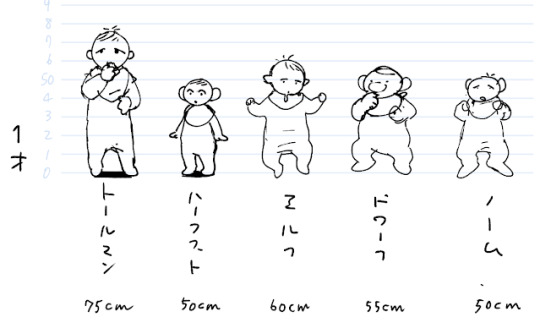
1 year old elven, dwarven and gnomish babies can only lay on their backs. Tall-man and half-foot 1 year olds can both stand, though the tall-man is not as good at it as the half-foot.
This lines up with real-world development milestones, human children can usually stand on their own somewhere between 9 to 12 months. Half-foots age faster than tall-men, so it makes sense that the half-foot would look more balanced and steady while standing.

A 2 year old elven baby has just gained the ability to sit up, while the babies of other races are walking or running. Normal human babies can sit up with help at around 5 months.
2 divided by 5 equals 0.4, that's 40%, and 40% of one year equals 4.8666666 months. That's 5 months.
I think it's very likely Kui herself is using the 5:1 ratio in order to calculate her elven ages in order to get this very specific 5 month developmental milestone to line up this way.
So we can confirm that any elf over the age of 2 years old should have an age that is calculable with the 5:1 ratio. I also think it's not crazy to assume Kui may be using the numbers I calculated in my age post to work out other character's ages as well, since she's clearly doing it for the elves.
LET'S TEST IT WITH HALF-FOOTS
Human children learn to run between 18 and 24 months, so around 2 years old, like the chart shows us. 2 years divided by the half-foot age ratio (1.1428571429) equals 175% because they grow faster than tall-men.
175% of 2 years is 1277.5 days... Which is 3.5 years. So a 2 year old half-foot has the maturity of a 3.5 years old human child. 3 years old is when human children are expected to run and jump easily, and climb stairs without help.
That sounds about right to me, since the half-foot child in the drawing looks like they can confidently run around without balance issues. One foot is off the ground, and their arms are pulled in closer to the body than the tall-man child's arms.
Meanwhile the tall-man child is more unsteady, both feet firmly planted, standing with their arms held out as far as they can go to help with balance.
DOESN'T 29=50 FOR HALF-FOOTS?
Kui says that Chilchuck would be about 50 if he were a modern day human (which he isn't, he's a medieval half-foot), and then she says that half-foots in the time of Dungeon Meshi only live to be about 50 years old on average.
I'm pretty sure she's telling us that if Chilchuck were a human in our world, he'd be past middle-aged, and then for contrast, she tells us that most half-foots in Chilchuck's world die by age 50. Not that Chilchuck's 29 years is equivalent to a 50 year old modern human.
Chilchuck is 29 years old, and he had his first child at age 13. The average age of death for half-foots is 50, then that means middle-aged for a half-foot is 25.
Chilchuck is 4 years older than that, which makes Chilchuck past middle-aged. It does not make him developmentally the same as a 50 year old modern human though.
Using the numbers I've worked out, a half-foot would be developmentally 50 years old when they're 44.
Kui says that although Chilchuck wants to retire from going into the dungeons, if he did, it would be premature... Just like it would be premature for a 33 year old to retire.
In the real world retirement ages are connected to the average age of death. As that number goes up, so does retirement age. Because modern humans live until around 72, as a global average, retirement age is somewhere in their 60s.
So since half-foots average lifespan is 50, a normal age for Chilchuck to retire would be in his 40s.
WHAT ABOUT OLD ELVES?
The average age of death for tall-men is 60, however we know that tall-men can live into their 80s because Marcille's father did.
The average age of death for elves is 400, but they can live up to 500 years.
There's no reason to think that DM tall-men aren't like real world humans, and can't live into their 100's if they are lucky and wealthy enough. Even in the real medieval period, some people lived into their early 100's.
The thing that makes average death ages low in real life is usually issues like high infant mortality, starvation, war, lack of medical care, and lack of sanitation.
In the real medieval period, the average age of death was 30 not because people dropped dead at 30, but because SO MANY children died young that it pulled down the average. In medieval times, if you managed to live to 25, you had an average of 23 more years of life ahead of you, which is 48 years old.
I think Kui raised the average death age to 60 for tall-men to account for the fact that even tall-men have access to more advanced medicine and healing magic in DM, so infant mortality isn't as high and the adults live more than a decade longer.
The elves naturally have a longer lifespan since they live 5 times slower than tall-men. However they also probably have a far more advanced society than any of the other races in Dungeon Meshi. Fleki calls the Eastern Continent a "primitive land", and it's mostly populated by dwarves, gnomes and tall-men.
If elven culture was developmentally the same as tall-man culture, I bet elves would only live to about 300, which would be 60 for them, maturity wise.
WHAT DOES THIS MEAN?
80x5 is 400. That seems correct to me, a 400 year old elf would be considered elderly and getting close to the end of their life. An 80 year old tall-man would be considered VERY old, having lived past average expectations... But those expectations, as I said before, are based on poor living conditions, not biological certainty.
100x5 is 500, so the two maximum ages (100 and 500) also line up when you use the 5:1 ratio.
POSSIBLE MAXIMUM AGES FOR OTHER RACES
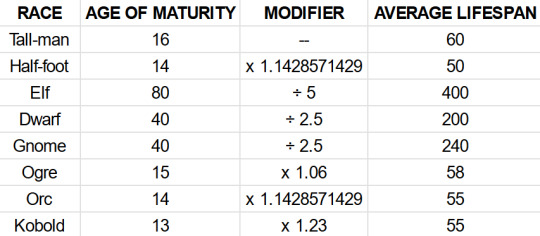
Using the same math, if gnomes and dwarves had the same culture as tall-men, they'd only live to be 150-ish instead of 240/200...
This is only a theory, but dwarvish and gnomish maximum possible ages should probably be around 250, if you multiply their age modifier (2.5) x100 like I did with the elves.
The current difference between their average age of death is probably attributable to lifestyle and cultural differences (gnomes use a lot more magic, and so they live longer).
Then, just to do the rest of the races:
Half-foots and orcs theoretical maximum age is 88.
Ogres theoretical maximum age is 94.
Kobold theoretical maximum age is 81.
Keep in mind, these numbers are based on the idea that "around 100 years old" is the oldest a human being can get. The oldest human to ever live survived until they were 122 years old... But obviously that is rare, and happened in the modern era.
Point is, there's wiggle room at the top end of the age limit, for some of the races that may be a matter of extra days or months, for others it could be an extra decade or two. But I'm using 100 for simplicity's sake.
Sorry for the long post! I hope this answers people's questions, and if I messed something up let me know!
#dungeon meshi#delicious in dungeon#dunmeshi#theories#dungeon meshi and aging part 2#chilchuck#chilchuck tims
268 notes
·
View notes
Text
Ok thought not fully formed yet but I think everything would make a lot more sense if we thought of "sin" as more along the lines of "something that weakens your connection with God" and less "a morally bad action in the secular philosophical sense."
In modern secular philosophy, usually we only think of an action as "bad" if it causes measurable harm to society/the environment/another person etc. No victim = no crime. This makes perfect sense when we're thinking about regulating behavior with laws, rules, and, to an extent, social norms. The goal of this kind of thinking/regulating is to create a harmonious, free, and safe society in our mortal/temporal/earthly condition.
In contrast, Sin as a religious (Christian) concept is more concerned with the state of an individual soul and that soul's relationship with God. It is possible for something to be a sin and yet be a "victimless crime." (Arguably the "victim" here is actually the "perpetrator" but you know what I mean.) The goal of this kind of thinking is to help the individual be in harmony with God.
I think the problem here is when we conflate the two uncritically. Yes, there is a lot of overlap (murder, for example, would draw you further from God and also is harmful to the murder victim/their family/society.) But the two concepts are not one and the same. Just because a behavior is sinful doesn't mean it can and should be forbidden by law, rule, or even social norm. Likewise, just because enforcing or encouraging a certain behavior is beneficial to society doesn't mean that behavior is or isn't a sin.
I think this conflation is a source of miscommunication and misunderstanding. Lots of people seem to interpret calling a behavior sinful to mean "if you do this you are an bad person who is actively harming society."
I also think that's why people get so turned off by the concept of all sin being equal in the eyes of God. That isn't the same thing as all morally bad actions having equal weight or consequences in society. The point is that all sin separates us from God, and what His plan requires for us is for there to be zero separation. (That's where Jesus comes in). The point of saying all sin is the same in the eyes of God isn't to say that murder and not praying are equivalent in secular morality. The point is that someone "guilty" of not praying needs Jesus just as much as a murderer. (Because! We all need Jesus completely and equally.)
So anyway I guess my point is that Christians need to recognize that just because something is sinful (separates a soul from God) doesn't mean that that thing should be illegal or against the rules or even socially shamed.
But! Non-Christians should also understand that the concept of sin is distinct from secular morality. If I say that something is a sin, don't take it as me saying "anyone who does this is evil and depraved and deserves to be executed by firing squad." girl I sin. we all sin.
#help does this make sense#again! There's overlap#because chances are if you are knowingly causing undue harm (morally wrong) that's also a sin babey#can't think of an exception tbh#also there is kind of a gray area in the middle involving intention and impact#I could do something that causes unforeseen harm#that might not be a sin (I had good intentions) but had bad consequences#but secular morality imo usually has concessions for that sort of thing as well?#christian#christianity#religion#tumblrstake
381 notes
·
View notes
Text
Y'know, I've been bitterly joking that the way that some Leftists use the word "genocide" to describe what's going on in Gaza, then a traffic light qualifies as 'impeding freedom of movement'... but I wasn't expecting to have someone basically come along and basically say that...
Words have meaning, people. As @noparlpf so succinctly put it, that "-cide" suffix in "genocide" is important, and if any legal inequality is equivalent to systemic mass murder, then pretty much every government is engaged in active genocide. Just because you can tick boxes off on the "Stages of Genocide" list does not mean that a genocide is happening. Things can still be bad without it being "the Crime of All Crimes", and trying to claim that every modern conflict and every division of people into "us" and "them" is an immediate danger of genocide does nothing but raise alarm fatigue for when it actually happens.
238 notes
·
View notes
Text
Sir Pentious & Alastor: an underrated dynamic
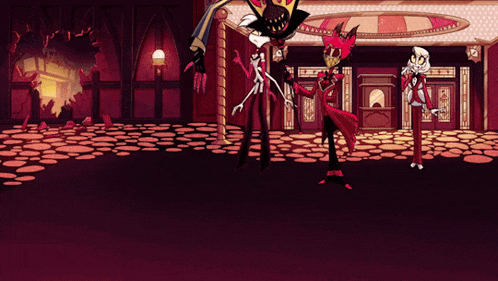
"Show yourself, Alastor! Come and face--! Oh, there you are. FACE MY WRATH!"
Sir Pentious has been in Hell for much longer than Alastor. That means he was there when the Radio Demon appeared, and he's been trying to overthrow Alastor for decades! We know what Alastor is capable of, and what he could do if he truly wanted Sir Pentious to stop. He obviously doesn't register Sir Pentious as a threat, but that doesn't mean he's not annoying (like when he interrupts his song in the pilot and destroys a wall in ep2). Yet in all those decades, Alastor always let him go with the equivalent of a slap on the wrist, considering what he's done to other sinners in his broadcasts.
And why is that? Why, he must find Sir Pentious very entertaining, of course! Even though he calls Sir Pentious forgettable (to rile him up), there's no way a narcissist like him doesn't LOVE being the main focus of Pentious' "evil plans", as pathetic as they are. Not only does he give him the attention he deserves (like Vox), he's a true "architect of evil" who constantly reinvents himself to try and get the upper hand on Alastor. To Alastor, Pentious is like a sillier, weaker, more immature version of Vox with close to ZERO survival instincts but twice the creativity. Even Vox, who made a whole diss track about Al, wouldn't dare speak to him the way Sir Pentious does if they were face to face.

"SILENCE! Now cower! For when I've ssslain you, the almighty Vees will finally acknowledge me as their equal."
He does have some "oh shit" moments when he sees he crossed a line/is about to get Team Rocket-ed, but he still gets back up and attacks him again with all the unearned confidence of a man who has no idea how easy Alastor goes on him.
Just like Alastor, Pentious is attached to the aesthetics and technology of the time period he knew when he was alive, and still manages to innovate with those limitations. I think Alastor could respect that.
"You whores have no class! In war, the side remembered is the side with the most style!"
It's also funny that to Pentious, Alastor is the young, modern one. Some phrases Alastor uses are "young people slang" to him!
Pentious asking Alastor questions on his "modern" radio technology...
Alastor is one sarcastic bastard, and Sir Pent is one of the most naive characters in the show. He takes a lot of things way too literally (#autism?). That's just PERFECT for comedic misunderstandings between these two!
Before s1 was released there were quite a lot of ace!Pentious headcanons. I think we could still make a case for closeted ace-adjacent!Pentious in canon! Possibility even aroace!Pentious, if we interpret his crush on Cherri as compulsive heteronormativity (he loves her creative genius and is fascinated by her explosive contraptions; surely that means she's the one, right?)
Ace4Ace Alastor & Pentious would be a fun duo in my opinion. They could bond over their shared experience
On the topic of bonding... ("I have feelings for you" (Narrator voice: the feeling was friendship, but he had ever experienced it before)
Seriously, imagine Sir Pentious spending more and more time around Alastor because of the hotel, taking his sarcastic and mocking remarks literally and thinking they're becoming closer... And then being like. WAIT. Do I have feelings for him?? and trying to seduce him like he does with Cherri Bomb. The absolute shenanigans... Rizzlord Pentious strikes again.
Accidental fake dating scenario that only exists in Vox's head, where Vox, being the stalker that he is, spies in the two of them bonding and reaches all the wrong conclusions
Once Sir Pentious dies for the second time and ascends to Heaven, he could meet Alastor's mom 👀
EDIT: OH and How could I forget the Egg Boiz?? Egg Boiz babysitter!Alastor is canon and he definitely babysat them multiple times in the few months Sir Pentious spent at the hotel. Joint custody :3
AND let's not forget the important information that Frank the Egg Boy reported to Sir Pentious lol. The one Charlie made a deal with Alastor for. I can imagine Alastor considering killing the Egg Boiz/ Sir Pentious after learning Frank didn't keep quiet (Imagine Sir Pentious trying to engage in a conversation w/ Alastor and telling him what Frank told him as a joke akfkkd), spending a whole afternoon trailing after them and making plans, only to realise that the Egg Boiz say insane shit all the time and Sir Pentious was in fact NOT playing 4D chess by telling him he knew (and probably already forgot all about it)
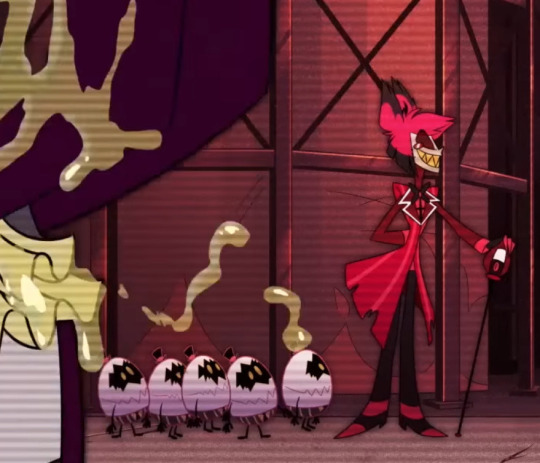
127 notes
·
View notes
Text
I’m reading Late Fascism by Alberto Toscano. I’m still on the first chapter, where he discusses various definitions of fascism and their usefulness for highlighting specific components of fascist rhetoric and organising. And I particularly like this section where he critiques and dismisses the “white-working-class” argument, ie, that the modern bases of fascism can be found in the white working class, who express this fascist consciousness through voting for right-wing politicians (and he is of course talking about the US, addressing this formation re: the Trump base):
This is why it is incumbent on a critical (or indeed anti-fascist) left to stop indulging in the ambient rhetoric of the white working-class voter as the subject-supposed-to-have-voted for the fascist-populist option. This is not only because of the sociological dubiousness of the electoral argument, or the enormous pass it gives to the middle and upper classes, or because of the tawdry forms of self-satisfied condescension it allows a certain academic or journalistic commentator or reader, or even the way it leads a certain left to indulge the fantasies 'if only we could mobilise them' and 'if only we had the right slogan'. Politically speaking, the working class as a collective body, rather than as a manipulated seriality, does not (yet) exist.
To impute the subjectivity of a historical agency to a false political totality is not only to unwittingly repeat the unity trick of fascistic propaganda but also to suppose that emancipatory political forms and energies lie latent in social life. By way of provocation, we could adapt Adorno's statement, quoted earlier, to read: 'We may at least venture the hypothesis that the class identity of the contemporary Trump voter in a way presupposes the end of class itself.' A sign of this is the stickiness of the racial qualifier white in white working class. Alain Badiou once noted about the phraseology of ‘Islamic terrorism’ that
when a predicate is attributed to a formal substance… it has no other consistency than that of giving an ostensible content to that form. In ‘Islamic terrorism’, the predicate ‘Islamic’ has no other function except that of supplying an apparent content to the word ‘terrorism’ which is itself devoid of all content (in this instance, political).
Here whiteness is - not just at the level of discourse, but, I would argue, at the level of political experience - the supplement to a politically void or spectral notion of the working class; it is what allows a pseudo-collective agency to be imbued with a (toxic) psychosocial content. This is all the more patent if we note how, in both public debate and psephological [electoral] 'expertise', whiteness seems to be indispensable in order to belong to this ‘working class’, while any determinate relation to the means of production is optional at best. (pp 19-20)
His critique of the white-working-class argument, that ‘The Left’ has insufficiently persuaded this group and left them to be duped by ‘The Right’, is that in order to conceptualise the white working class as a coherent political group that has become aware of itself as a political group through right-wing (fascist) consciousness-raising, is to argue that fascist consciousness is a form of proletarian class consciousness. As he says, it’s not only incorrect in practical and factual terms, but makes an analytical error in assuming that fascists are primarily mobilising people with regard to their class position. This argument accepts the validity of the “populist” label as a horseshoe catch-all, that left-wing articulations of proletarian class consciousness are equivalent to right-wing articulations of a national/racial pseudo-consciousness.
And as he says, this is also not an argument about class at all - working class means nothing in this formulation, its primary function is to ground ‘white’ and give it apparent meaning. This is how he arrives at Adorno’s adapted formulation of ‘presupposing the end of class itself,’ as class holds no explanatory power and makes little reference to reality (it is only a ‘spectral notion’). In effect, it collapses ‘white’ into ‘working class’, making whiteness a prerequisite of belonging to the working class. This is a hilarious trick given that the white qualifier is at least partially meant to save the journalist or academic from accusations of assuming all working class people are white, but by emphasising whiteness with no regard to the class position that the white-working-class supposedly occupies, race is flattened into working class, reducing class to (the white) race.
Of course, this conclusion is not derived from any serious analysis of racial histories and economic processes such as colonialism, where this race/class intertwining helps to explain and understand the lineage of race itself. I’m pulling now from Aníbal Quijano’s Coloniality of Power and Eurocentrism in Latin America, who argues that race functions as the organisational system of class in settler-colonial contexts; race refers to and gives shape to the class position in the means of production in settler-colonial societies, where positions such as “slave” and “slaveowner” as classes are enforced and systematised on the basis of race, naturalising class to the supposed “biological reality” of race.
Through this analysis of colonialism and race we see how even more absurd this white-working-class argument becomes, that it concludes that whiteness is a racial barrier of entry to the proletariat; in effect, very roughly inverting the racial logic of colonial capitalism in order to argue that poor whites are the base of fascism. Noticeably, this accepts the basic fascist argument that whites are an underclass being oppressed by a non-white ‘misfit’ bourgeoisie, who achieved their position through social manipulation, trickery, and liberal social justice programs like affirmative action. Where liberals depart from this formulation is merely to argue that a diverse ruling class is the result of meritocracy as opposed to social engineering.
This is a liberal articulation of fascism: an adoption of the fascist logic that races can be activated as a class, that race is a dormant social energy that can be activated in the minds of a white class, but this argument is used as a means of obscuring white supremacy as a tool of right-wing reaction and mobilisation by tacking on the qualifier of ‘working class’ at the end. In this way, working class becomes the qualifier to white, not the other way around, positioning fascism as a purely lower class phenomenon, something that afflicts only the poor whites, the stupid whites, the uneducated whites. This allows for the obfuscation of the bourgeois character of fascism, and provides fuel for “the tawdry forms of self-satisfied condescension it allows a certain academic or journalistic commentator,” many of whom are themselves white.
69 notes
·
View notes
Note
Can I ask a question? I like your sanders sides a lot and you give them a lot of personality in their designs! How do you make them like that? Or I guess I mean, what inspires you to make them the way that you do? I want to draw the sides but I'm not sure how to start other than their canon designs!
Oh my goodness I LOVE this question! For me, it's all about the feelings you get when you see them and the vibes I want to express. The Sides embody, to me, more than an aesthetic it should also encompass personality, role, and intention. In other words, I match their aesthetics to their function and the intent of what I feel like Thomas originally intended for them for their first short videos before they were actual sides.
Let us pick Roman, because even though people say he's not, he tends to be everyone's favourite to reblog fro me because he's pretty.
So I started by drawing him exactly as he was and to me he felt flat- in the show he's exactly as he should be but I am an artist and to me he feels more than what he looks like- it's dreamy, it's romantic, it's like he's giving childhood favouritre Disney Prince vibes, you know?
Inspiration 1: Prince Phillip
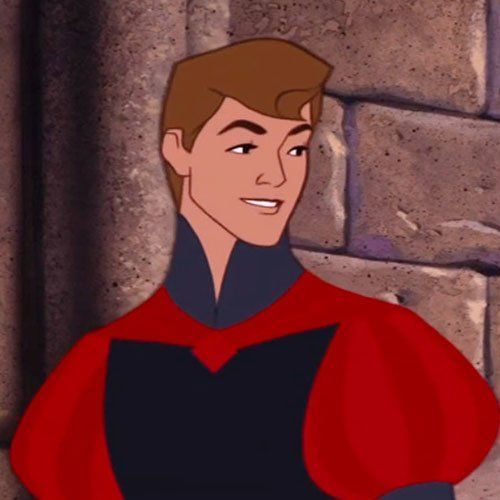
Hands down the biggest inspiration comes from him because he IS my favourite disney prince. Just looks a the hair swoop and the eyelashes- perfect. So I went ok my favourite Disney Prince is Phillip, let's start here. Before the CGI movies, there was such a romantic feeling about classic Disney princess movies and I've always loved the romantic feeling of Sleeping Beauty. The backgrounds are stunning, the way she's animated makes my bi ass give heart eyes and I loved that he was the only prince at the time who had a personality (until Beast but that's a whole other can of worms because he started out as an asshole/grumpy). I feel like modern Disney movies miss a lot of the romantic dreamy feeling of the older 2d movies because there was such care into the painted backgrounds being LESS realistic and more a fabulous idea of what a background should be and AHA! MORE INSPIRATION~! Let's make Roman a fabulous romantic idea of what a prince should be!
Inspiration 2: Faerietale Knights in Shining Armour
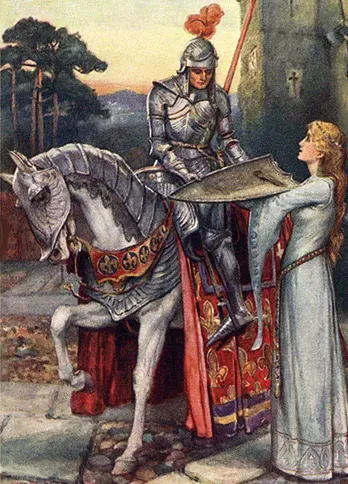
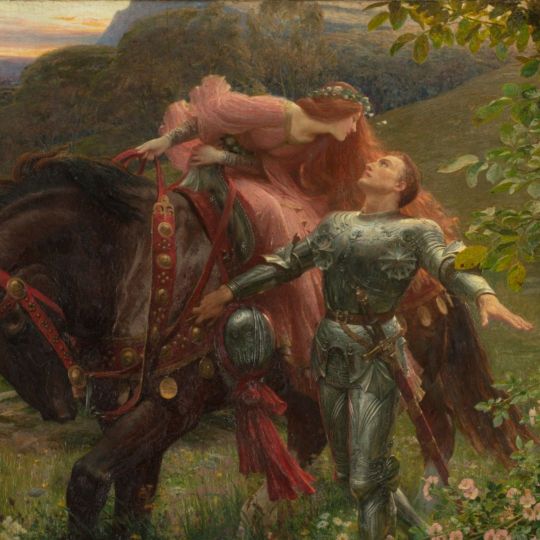
Our ideas of medieval knights are nothing like actual knights which are more reminiscent of hired military and enforcers. Our ideas of faerietale knights in shining armour are brave knights who would go off to kill a dragon to show their devotion to the one they love. Sword fighting heroes- is that not Roman if not an idealized romantic "royal knight wants to win the heart of the love with courageous deeds, acts of chivalry, selfless devotion" etc. Prince Phillip is a good model of this. Defeats a dragon and true love's kiss saves the day. A perfect romantic dream isn't it? Realistic? No of course not, but Roman isn't realistic he's creativity and romance which absolutely ignores practicality for the dream.
So we have this culmination of dreamy romantic disney prince and faerietale influence.
Now it's about aesthetics- Roman is reds and golds and whites, all royal colours typically associated with bravery, lineage, and strength and purity etc.
Inspiration 3: Media referencing
So let's find some movie or media equivalence I can reference. They came mostly in the forms of Narnia and Once Upon a Time.

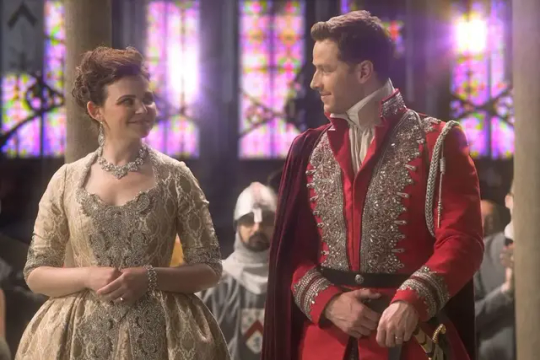


So some aesthetic inspirations for belts and textures, missing the epaulets.... so to military garb!
Inspiration 4: Russian royals


Let's face it no one does embellishments like this any more <3
Inspiration 5: Lions
Roman's colours being red gold and white give me lion inspiration too so I looked up royal lion iconography as well (which ended up with a lot of lion king in the search because this was before AI but like.... it's not incorrect and the wavy flowy mane acted like hair. If Hamlet with lions is inspiring then use it, right? that have some AMAZING lion king-style artists on deviantart to get inspired by, it's a whole thing, mad respect) But ANYWAYS it gave me some cool stuff to be inspired by too.
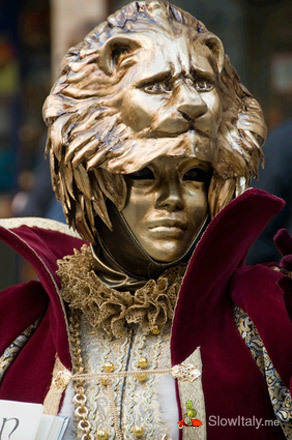
Inspiration 6: Classic Golden Age Hollysood Leading Ladies (Note that this isn't femme fatales, because for Janus I used femme fatales as inspiration)
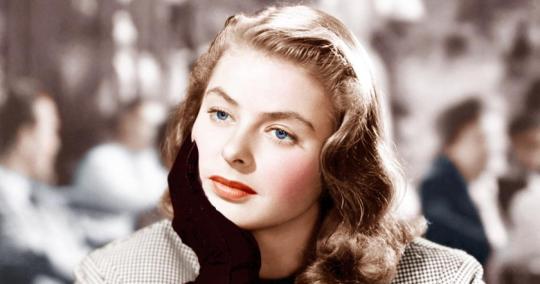
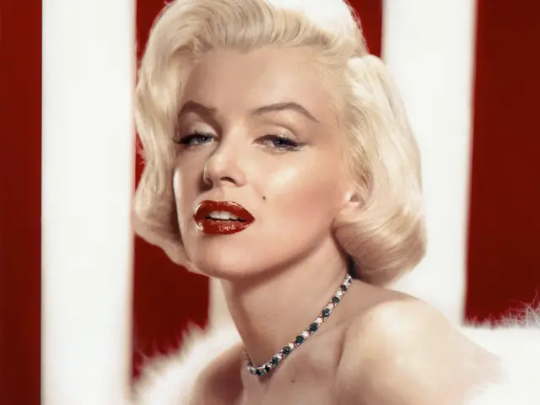
I knew that I just HAD to give Roman that Marilyn Monroe beauty mark, yes he paints it on every day yes it's in the same spot every day yes it's necessary.
Ultimately this culminated in a checklist of things that I wanted for him:
He must give the feeling of Prince Phillip in disney prince style
I wanted him to have flowey hair that makes him look softer and romantic and can be pulled up into a ponytail if necessary.
Must have a beauty mark and eyelashes that go on for ages reminiscent of old hollywood ladies, and let's throw in nail polish too.
I wanted him to have an outfit that would be his original but embellished to hell that can be like Narnia or OUaT in terms of texture and added stuff. It needed more gold, 100% needed epaulets (the shoulder things with the dangly rstuff), and it needed a belt where a sword could be attached. Danglies not always necessary, but look really good when done and is reminiscent of old fashioned military garb and Russian royalty.
He needed to look like he's used to wearing this outfit every single day and going out of his way to do so.
Ended up with this:
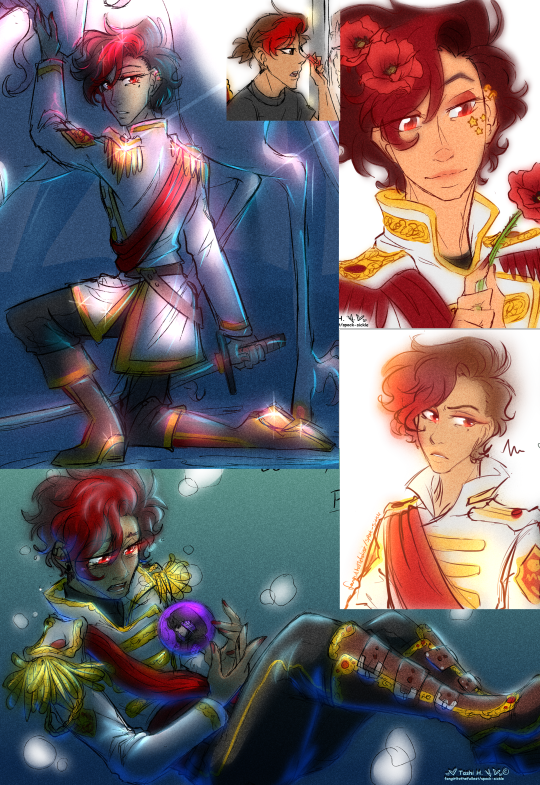
So yeah that's how I got to his design!
101 notes
·
View notes
Note
In your opinion, what makes a good spider-variant design? I'm trying to avoid the pitfall of "bunch of normal ass clothes over the suit" I typically see, but also struggling to come up with anything that's clearly a spider-man when you look at it and doesn't confuse with peter parker's spider-man
That's a good question! So good that I'm going to bust out the proper capitalization and everything.
I'll give you a freebie right off the bat, because this is probably going to be a long post: one easy way to distinguish your character from Peter Parker is to draw them with a different body type. That way, even if their costume was similar to Peter's, it would obviously not be him.
Now, before getting into what I think makes a good Spider-Man design, I feel obligated to speak on what makes a good superhero design. Namely: Keep it simple, stupid! The best superhero costumes are pretty easy to draw, probably because they were designed to be drawn a million times by a million different artists. These costumes are simple enough that they can reduced to bands of colour and stay recognizable.

I promise that keeping your design simple will undoubtedly make it better-- or at least more superheroic, because this applies to Spider-Man, too!
Onto making a Spider-Man costume that is recognizably Spider-Man, but clearly not Peter Parker's. Obviously this costume is going to look different than Peter's classic costume, so we could start by figuring out what about that costume we can change. Thankfully, they already stripped Spider-Man down to the essentials in 1984.

Mike Zeck's black costume identifies these necessary elements of Spider-Man's costume:
Those luchador eyes
The front and back spider emblem
Form-fitting tights
The rest of the costume (the segmented colours, the web pattern, etc.) are basically fine for you to ignore or change at your leisure. Okay, maybe not... you could just draw Green Lantern and put a spider on his chest and back, and that probably wouldn't make for a great Spider-Man. But it's a place to start, at least. As long as you're putting serious thought into this costume, though, you should be able to ignore pitfalls like that.
Hey, speaking of thought, I thought I should cover some of those extraneous details Ditko included in his iconic Spider-Man design! Namely the way he chose to segment the reds and blues, he actually put loads of thought into it:
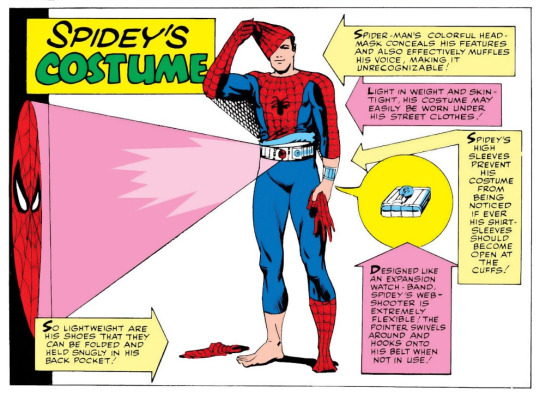
Namely, the high-rise gloves and boots help Peter's costume remain invisible beneath his civvies. I actually think these logistics are important to consider when designing a Spider-Man costume (or really any costume).
Anon mentions the "bunch of normal ass clothes over the suit" trend in spider-design in their ask, which I was happy to see because it means I can talk about something that really bugs me about recent Spider-Man stuff: How does Spider-Man stick to walls through regular shoes? No, seriously? Think about it for a second! When Miles wears Jordans over his Spider-Man costume and tries to stick his feet to a wall, wouldn't his feet just stick to his shoes instead?
Ditko rationalized this by deciding that Spider-Man can stick to walls through thin fabrics, but that rule has basically been forgotten. Despite how I sound, I'm mostly fine with this change (this is a textbook 'rule of cool' case), but these kinds of things are worth thinking about.
In that vein, keep in mind that Spider-Man's superpowers really lend themselves to acrobatics. Your spider-character probably shouldn't be wearing a suit of armour, or something that would greatly restrict their movement or sticking ability. That's why I labelled "Form-fitting tights" as a necessary characteristic of a Spider-Man costume earlier on in this post.
Before I wrap this up, one more thing you can try doing if you're stumped is looking at real life for inspiration. Whether that's going back to the old strongman outfits that gave way to the original superhero costumes, looking at modern day equivalent athletic wear, or even looking at actual fashion (as long as you're not just putting that fashion over the suit), there's bound to be something that could give you ideas.

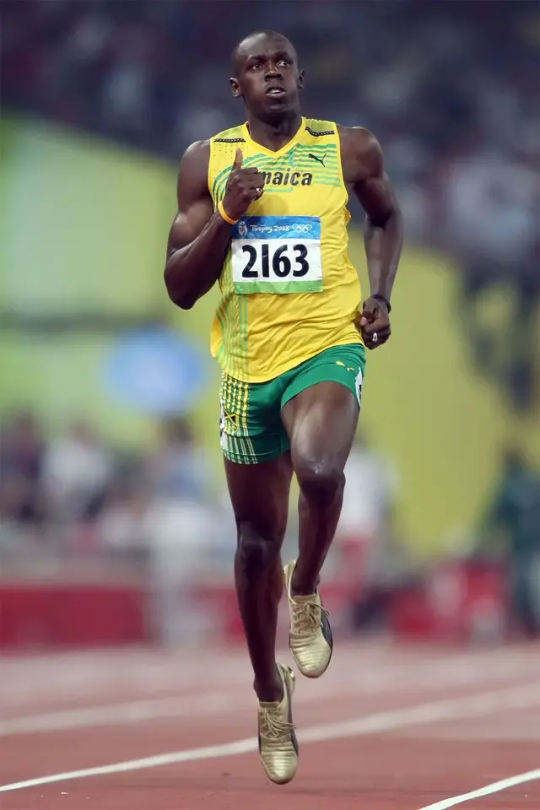

79 notes
·
View notes
Text
罠英語・Trap Words pt 5
ソース → ❌ Sauce → ✅ Japanese style worchestershire sauce

In Japanese common usage, the word 「ソース」 only refers to a specific subcategory of sauce - japanese style worchestershire sauces. Although in certain technical circumstances, 「ソース」 may also carry the broader meaning that the english equivalent does, calling something like soy sauce 「ソース」 in a regular conversation won’t get your meaning across.¹
We can see this in the Japanese Wikipedia article for ソース. Though the article is about the broader definition of sauce, there is a notice at the top of the page:

“This article is about the general name for a liquid or paste used to season food (the broad definition of 「ソース」). For Worchestershire Sauce (the narrow definition of 「ソース」), see Worchestershire Sauce.”² (my translation)
Side note: I know it's a meme but "Worchestershire" isn't hard to say. It's just "wooster-sheer".
Though ソース can be found as a part of various other words ( ミートソース/meat sauce; ホワイトソース/white sauce; トマトソース/tomato (pasta) sauce), when it is used just by itself, it almost exclusively refers to worchestershire sauce varieties. For example, you can’t abbreviate ミートソース to ソース, even when the context is clear.
Within the category of what Japanese speakers mean when they say ソース, we have ウスターソース, which is similar to the thin English Worchestershire sauce; 濃厚ソース, which is sometimes marketed as tonkatsu sauce and is very thick and viscous; and 中濃ソース which is somewhere in between. お好み焼きソース is also a type of ソース, similar to 濃厚ソース.³
グリーンピース → ❌ Greenpeace → ✅ peas
Yep… the word グリーンピース doesn’t refer to the environmental activism organisation Greenpeace, which I discovered to some surprise during an actual conversation with my Japanese partner. Since Greenpeace is famous for its anti-whaling stance, and Japan is the country with the highest levels of whaling in the world,⁴ it was only natural to assume that it was a direct transliteration of the organisation’s name. Maybe it’s a common point of discussion in Japan, I thought.
In reality, it literally just means peas. Green peas. An instance of the plural being built into the transliteration (like バケツ), since Japan has no plurals. It’s weird that it’s not グリーンピーズ though, don’t you think? I guess we can just chalk that up to an initial pronunciation error that carried though to the modern day.⁵
Why hasn’t it been shortened to ピース? Well:

Because ピース means “the peace sign”. This word/pose is so common in Japanese culture that shortening グリーンピース to ピース would likely be confusing.
To be clear, the organisation’s name is also transliterated as グリーンピース, but overwhelmingly in regular conversation, グリーンピース will mean “peas”.
トレーナー → ❌ trainers (sneakers) → ✅ sweatshirt
This might not necessarily be a trap word for people from the US, but it is at least a funny place for 和製英語 to show up. According to this source, this word was invented by a fashion designer named Kensuke Ijizu, who was apparently a big boxing fan, and noticed that the trainers always wore sweatshirts, and so decided to name the clothing 「トレーナー」 when he released his designs in Japan⁶. It’s rare that a trap word has such a clear explanation for how it came about! めっちゃスッキリした!
However, スウェット and スウェットシャツ are also both commonly used in Japanese, meaning the same as トレーナー, so this is really only a problem while listening, not while speaking.⁷ It’s also worth noting that トレーナー does mean “trainer” as in like, a personal trainer. That’s where the weird word for sweatshirt comes from, after all.
Sources
[1] https://www.youtube.com/watch?v=OLpub5uXA1A
[2] https://ja.wikipedia.org/wiki/ソース_(調味料)
[3] https://www.kurashiru.com/articles/b3134417-fc0e-4782-a5d8-40932613ea79
[4] https://www.abc.net.au/news/2014-04-08/whaling-around-the-world-how-japans-catch-compares/5361954
[5] https://twitter.com/japanese_eng/status/1562198000411193345
[6] https://zatsuneta.com/archives/007218.html
[7] https://ja.wikipedia.org/wiki/スウェット
#langblr#japanese#japanese language#language#language learning#linguistics#learning japanese#trap words#jimmy blogthong
54 notes
·
View notes
Text
Alan Wake and The Implications™️ of Gnosticism as told by Carl Jung (1916)
So in AW2 NG+, there is a new video called "Spiral," where he ruminates on the implications of what the Spiral could mean (spoilers below, and a very long post ahead)!
"There are loops beyond these loops. Vast, complex super structures. Beyond what's happening to me now, ahead of me. And I'm there as well. A version of me, something I have become- some elevated, enlightened version- an archon, a demiurge, a demon of some sort- playing a secret game."
Now this is veeeery interesting to me.
In the Gnostic religion, The Demiurge (literally "artisan" in Greek) is described as a creator of the material world. He is the God of the world, but not the God of the universe. Think Cronus or Odin, under Uranus and Burí. The Demiurge cannot create something out of nothing. He takes matter, already existent and created by the upper god, and turns it into our world, though it comes out imperfect due to the matter being imperfect.
Then, we have another Greek word admist his monologue: the "archon." The archon is Greek for "ruler" but in Gnosticism, it is the builder(s) of the universe, composed of a team. There's usually seven, and each one rules a planet.
And finally, the demon. That's self-explanatory. In Gnosticism, the definition is interchangeable with the Archons. The Archons are demons and the demons are Archons. Yes, this is relevant.
What I find interesting is the intersection where these definitions meet, the center of the Venn diagram. The Demiurge, the Archon, and the Demon is Yaldabaoth, The Son of Chaos and The Prince of Darkness. He is also known in some iterations as Samael, the Angel of Death, and is primarily viewed as the precursor to our modern day Satan, as well as the Gnostic equivalent to Seth, Saturnus/Cronus, and Typhon. He is described as having a face made of "half flame, half darkness, defiled with blood."
If you ask what his morality is, you will spur a fishtfight among the occult (as I found out by perusing the various forums and subs). He is generally considered evil or amoral, but he used to be depicted as a genuinely "good" God. He is usually described as arrogant, a "fiery nature," ignorant of higher powers and jealous of other gods.
Now, Jung further developed his idea of the Demiurge and Archon and Demon from Yaldabaoth, giving him the name of Abraxas, as taught by Basilides. Little is known about Abraxas, as the sources beyond Jung are scarce, though his name dates back to the ancient Greeks. The church burned much of the text that held his name. The Catholic Church outright banned him for being a pagan God and a demon. He is the God of time, and is more powerful and more dualistic than the aforementioned Yaldabaoth (both morally and figuratively) . He was a prominent figure in his book, *Seven Sermons to the Dead,* where he had this to say about him:
"That which is spoken by God-the-Sun is life; that which is spoken by the Devil is death; Abraxas speaketh that hallowed and accursed word, which is life and death at the same time. Abraxas begetteth truth and lying, good and evil, light and darkness in the same word and in the same act. . . He is the God of the cosmos, extremely powerful and fearful. He is the creative drive, he is form and formation, just as much as matter and force, therefore he is above all the light and dark Gods. He tears away souls and casts them into procreation. He is the creative and created. . . His power is the very greatest, because man does not perceive it at all. He is magnificent even as the lion at the very moment when he strikes his prey down. His beauty is like the beauty of a spring morn. To see him means blindness; To know him is sickness; To worship him is death; To fear him is wisdom; Not to resist him means liberation … Such is the terrible Abraxas … He is both the radiance and the dark shadow of man. He is deceitful reality."
Abraxas is duality, the God and the Devil combined in one. He is the beginning and the end. The first word and the last.
Anyway, we reach the part where he has successfully Ascended. He pronounces himself the "Master of Many Worlds." He becomes, in this sense, an "archon, a demiurge, a demon," and I can only imagine what that entails. Talk about a character arc!
#alan wake 2 ng+#aw2#alan wake 2#alan wake ii#alan wake spoilers#alan wake 2 spoilers#alan wake ng+#Alan wake
79 notes
·
View notes
Note
Look at this....☠️ https://www.tumblr.com/bohemian-nights/737003196544958464/fuck-rhaenyra-fuck-the-writers-with-this-sapphic?source=share
Fucking hell.
First off: I find it interesting the anon doesn't acknowledge that Laena x Daemon is also incest. Sure, she's not his niece, but she is still related to him. They love projecting their insecurities about their ship onto daemyra.
Second: yeah, HoTD choosing to make the Velaryons black then sidelining them massively is shitty and, sure, could be interpreted as racist. However, how is that Rhaenyra's fault? She didn't make Daemon marry Laena when he couldn't have her neither did she kill Laena. Condal and Hess chose to write out Laena's relevance (which already wasn't much outside of being Daemon's wife and Baela and Rhaena's mother) in order to give Alicent more screen time. But again, that's neith Rhaenyra's nor Emma D'Arcy's fault, stop blaming them (also Emma is good at playing Rhaenyra as she is written, the only issues are the writing, which aren't their fault). Op also chose to ignore the fact that Daemon actually is confirmed by GRRM himself to have loved Rhaenyra the most.
Moving on, once again the Rhaenyra antis are bringing up how Rhaenyra isn't "feminist". Literally no one in F&B is feminist by our modern definition. Visenya and Rhaenys are probably the closest, and even then, they aren't writing feminist manifestos (which apparently Rhaenyra is expected to for some reason). Alysanne, the most proactive queen regent, still enforced arranged marriages on her daughters and granddaughters. Rhaenys didn't advocate for Laena's right of succession in the book and in the show refused to support Rhaenyra long before Laenor's "death". Her antis hold Rhaenyra to unfair and unrealistic standards while making excuses for or ignoring other characters who don't meet them.
In that same vein, I still can't get over how Rhaenyra antis will say that TG aren't the conservative group. They say Rhaenyra isn't a feminist and that TG, the ones who are obsessed with male primogeniture and believe being gay, a sexually liberated woman, a child born out of wedlock, or not adhering to the equivalent of the Catholic Church make someone subhuman are the "progressive" group. It's delusion at its finest. Alicent and the greens are misogynistic and, because of them, women's rights in Westeros ended up more repressed than ever.
The fact that the op says that Visenya and Queen Rhaena are acceptable shows they have no understanding for TG or F&B. First off, TG would never support either woman. Visenya was hated by the Faith and most of the Lord's of Westeros, she was a warrior accused of witchcraft and dared to interfere with the misogynistic customs alongside Rhaenys. Rhaena was gay, something she wasn't allowed to live fully because the Targaryens chose to conform to Westerosi ideals. She was also robbed of her inheritance, even Jaehaerys acknowledged that Rhaena was the rightful heir, just as Aegon acknowledged Rhaenyra was.
As for the racist allegations, those come exclusively from Mushroom, someone who is far from a reliable source. Mushroom invented an entire woman to try to add "spice" to Jacaerys' story: Sara Snow. A woman of whom there is no record of, even though she was raised in Winterfell and supposedly married Jace. If Mushroom is willing to make up a whole ass woman to make the story more dramatic, why should we trust anything he says?
Yes, Rhaenyra ordered Nettles' execution, but that was because of her rumored relationship with Daemon and Rhaenyra's paranoia which had grown massively since Hugh Hammer and Ulf White's betrayal. Was it just? No. Was it racially motivated? According to Mushroom, maybe, but looking at Rhaenyra's character, it doesn't make sense.
Moving on, what exactly does op mean by "she's done too many things to claim she's been wrongly framed by the narrative"? By the time Nettles comes along, Rhaenyra hasn't done much that could be considered reprehensible. Op seems to have an issue with Vaemond's death, which Rhaenyra did order in the book. They seem to think that Vaemond "rightfully called her out" and was wrongfully killed.
She ordered Vaemond's execution after he declared her sons bastards in order to challenge Corlys' decision regarding succession. Keep in mind, Vaemond in the book is Corlys' nephew, not his brother, which moves him even farther down the line of succession. Vaemond not only was putting Rhaenyra and her sons in danger but was also trying to usurp all of Corlys' line, including Baela and Rhaena, who op seems to like a lot.
Yeah Rhaenyra is much harsher in F&B, but that hardly makes her evil and irredeemable. Queens Visenya and Rhaena were both harsh and even cruel sometimes, yet op doesn't think they're irredeemable monsters.
I do agree with op's anger over the sidelining of the Velaryons, as I said earlier, but taking it out on Rhaenyra is completely uncalled for. Rhaenyra wasn't a monster, anyone who believes that has frighteningly little reading comprehension. Rhaenyra's reign would have greatly helped women's standings in Westeros and pushed along gender equality. Ignoring that fact and blatantly saying the greens aren't supporting the repressive patriarchy is delusional and idiotic. The greens' actions were damaging in every way. Vaemond was far from an innocent victim, he was power hungry and misogynistic in both the show and the book. Keep your angry focused on the right people, don't take it out on a woman who had her whole life destroyed by the patriarchy.
#rhaenyra targaryen#team black#anti team green#house of the dragon#asoiaf#anti rhaenyra antis#anti ryan condal#laena velaryon#daemon targaryen#nettles#hotd critical#anti laena stans
56 notes
·
View notes
Note
okay, I'm super curious about your thoughts on when and how snape becomes a potions master. some people say he was still working on his mastery when he became a professor but i like to think he got it in early 1980 and he apprenticed with a potions master he was recommended to through his ~connections~ (cough malfoy cough).
although the idea of him teaching and grieving and also attempting to not fail at the one thing he knows he's good at does have its own angsty appeal
thank you very much for the ask, anon!
although i regret to say that i'm going to start the answer to it by being very pedantic...
the idea that masteries are something which exist in the wizarding world is complete fanon.
they have emerged as a trope due to a reading of the phrase "potions master" which does make perfect sense outside of the cultural context in which the books were written - by which i mean that it makes readers unfamiliar with the culturally-specific meaning of this bit of language think of masters degrees or other high-level qualifications - but which is nonetheless incorrect within context.
"master" [and the feminine equivalent, "mistress"] is just an alternative term in british english for "teacher". it doesn't imply anything about a level of qualification. "potions master" and "potions teacher" are synonyms.
the term is archaic - british people nowadays would exclusively say "teacher" - and it's very class-specific, in that it would have particularly been used to describe teachers in elite schools, whether fee-paying private schools or grammar schools [state schools which are academically selective].
as a result, it turns up in lots of the children's literature written before c.1980 - especially in boarding-school stories like malory towers and the worst witch which are explicit influences on the harry potter series. it's used in the text - especially in the earlier books - as part of worldbuilding which generally seeks to make the wizarding world feel whimsical by virtue of being very old-fashioned, which things like the fact that the most advanced technology wizards use is the radio and the steam train also hammer home.
that snape is the only teacher referred to as a master is connected to these genre conventions. because snape is so important to the full arc of the story, he's the teacher we spend the most time in the classroom with throughout the six books in which harry's at school. and he's therefore the teacher who - in the first few books - best fits a children's literature archetype which we would expect to find in any twentieth-century school story [with a magical setting or not] - the hated schoolmaster who is horrible to the child-protagonist and who every child reading can't wait to see get their comeuppance.
so snape is a potions master because he teaches potions. nothing more than that.
but that doesn't mean that it's not worth thinking about his training...
clearly, higher education of the type most of us are familiar with doesn't exist in wizarding britain - nor, i suspect, in wizarding europe more broadly.
and this makes perfect sense - not only because the magical population is so small but because the divergence of the magical and muggle worlds in 1689 takes place well before universities and university-level education look like anything a modern student might recognise. a seventeenth-century university education was still broadly generalist and aimed at trainee clergy, and careers which we would nowadays expect to require a degree - such as law, finance, medicine, science, and engineering - were generally taught by apprenticeship.
this is clearly how things continue to function in the wizarding world of the 1990s, since we know from order of the phoenix that healers are taught by apprenticeship [and, indeed, that hogwarts graduates all go straight into the workforce after they leave school].
potions - since it's analogous to chemistry - is nonetheless understood in-world as an academic discipline. but this doesn't mean - within the post-school educational structures we can suppose the wizarding world has - that it's a discipline in which one needs specific formal training in order to acquire a right to teach or publish about it.
the seventeenth century was a period - especially in britain - marked by a great expansion of scientific enquiry. this was - by our contemporary understanding of academic science - amateur. scientists wouldn't have been expected to have doctorates, to work at universities, or even to have attended them, and their experiments were often self-funded by personal wealth or dependent on a patron. the circles [often international] in which they debated, demonstrated, and reviewed theories and inventions were social ones - the gatekeeping line was class [with the level of education - and, primarily, of literacy - that this implied], rather than level of education itself.
these social circles often had a certain level of official standing - by which i mean they became, during the period, the learned societies, the most famous of which is probably the royal society. membership [or fellowship] of the learned societies requires a demonstration of some sort of contribution to the discipline they relate to - which means that the vast majority of contemporary fellows of such societies are university-based academics. but this wouldn't have been the case in 1689.
and we know that the wizarding world has its own equivalent of learned societies, because slughorn mentions one in half-blood prince - the most extraordinary society of potioneers.
which is to say, snape is probably a member of this society. he may very well publish papers in academic journals connected to the subject [as dumbledore does in transfiguration today], and he undoubtedly has a reputation among the wizarding world's men- and women-of-letters. but he doesn't need to have any formal post-hogwarts qualification in order for him to have acquired this reputation.
so what do i think he's doing between 1978 and 1981?
well... he's a death eater.
my theory has always been that snape comes to voldemort's attention - via lucius malfoy - because of his potions skills. the dark lord's operation would have needed potions - poisons to bump off enemies, healing potions because wanted criminals can't just turn up at st mungo's, potions to trade on the black market [as aberforth dumbledore tells us the death eaters do during deathly hallows], and so on - and voldemort would want to keep the production of these potions in-house, rather than risk hiring a private brewer [even a shady one] who might change their mind and go to the aurors.
[this is also presumably what voldemort - undoubtedly at snape's request - tries to recruit lily to do.]
i have never believed that snape was taken on as a death eater in the expectation that he'd perform a combat role - there is a clear implication throughout the series that the only person he ever directly kills is dumbledore, and that he gets along badly with death eaters [such as bellatrix] who did take more violent roles in voldemort's terrorism.
so i presume that, when he leaves school, he ends up working as a personal brewer for voldemort - on a stipend presumably paid, at the dark lord's request, by either lucius or abraxas malfoy. i also presume that, outside of work voldemort specifically requests, he's given free reign to brew for other clients, study, experiment, and publish as he wishes.
and i further presume that if he trains with anyone, then that person is voldemort himself.
voldemort claims, in goblet of fire, to be interested in experimenting with potions. he appears to invent the potion made from nagini's venom which sustains his half-body prior to his resurrection - and i think the implication of the text is that he also invents the potion guarding the locket-horcrux. voldemort also evidently encourages snape's interest in the dark arts, and he also appears to have some influence over snape's comportment - the teen snape we see in order of the phoenix is extremely rough around the edges, in a way the adult snape, who both speaks and moves in canon very similarly to the adult voldemort, isn't.
voldemort taking such an interest in snape would - obviously - largely be a grooming tactic. snape clearly becomes a death eater because the organisation offers him a chance to belong and succeed which his class-background would ordinarily make impossible for him within wizarding society, and voldemort must therefore massively indulge his belief that he's never given the respect he deserves for his intellect. voldemort's obvious contempt for slughorn - who matters so little to him that he doesn't even bother to kill him - would, i imagine, also win snape round.
and by training snape in an academic rather than a combat sense, voldemort gains a valuable tool - someone he can place at hogwarts as a teacher to spy on dumbledore.
we can assume that voldemort was having dumbledore tailed throughout the first war - and, indeed, that this is what snape is doing when he overhears the prophecy - but that he couldn't watch him at all times because he didn't have a spy among the hogwarts faculty.
it is clearly voldemort who tells snape to apply for a teaching job in early 1980. he must also tell him to apply for the defence against the dark arts post [which we know snape canonically applied for first] - which means he must expect to be imminently victorious in the first war, since snape would only be able to stay in the position for a year...
the prophecy, which snape hears c. january 1980, obviously derails this belief slightly... and snape famously does not get the defence against the dark arts job for the 1980-1981 academic year.
how do we know this? because he tells us in order of the phoenix that he's been teaching at hogwarts for fourteen years. he says this right at the beginning of the autumn term in 1995 - so he clearly means that he's been teaching for fourteen previous academic years and the 1995-1996 year is his fifteenth. so... he started teaching at hogwarts in the 1981-1982 academic year.
voldemort settles on harry as the child the prophecy refers to after harry is born [so, after 31st july 1980]. we don't know how quickly he does this and we don't know exactly when snape defects to the order.
but, clearly, at some point during the 1980-1981 academic year, dumbledore hires snape to begin teaching from september 1981 onwards. he presumably tells snape to tell voldemort that his change of heart was because he didn't think snape was qualified to teach defence against the dark arts but that he does think he's qualified to teach potions [pointing, perhaps, to publications snape got out under voldemort's tutelage], and that slughorn's announcement that he intends to retire means that there's a position available. he then undoubtedly also tells snape to convince voldemort of the same pretence they'll use throughout the second war - that he's a loyal death eater passing information on dumbledore's movements to his master.
which is to say... when lily dies, snape has been in his job for at most nine weeks.
just imagine how miserable that must have been!
35 notes
·
View notes